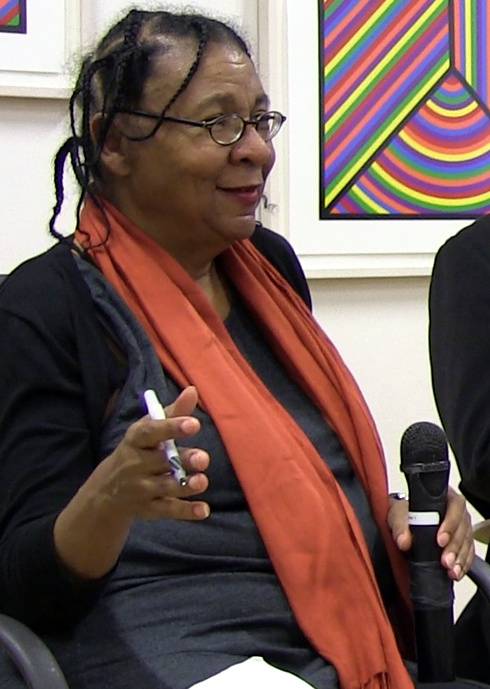
FAQ About Bell Hooks

Who is Bell Hooks?
Bell Hooks was an influential cultural critic, feminist theorist, and author known for her powerful insights on race, gender, and class. Born as Gloria Jean Watkins in 1952 in Hopkinsville, Kentucky, she adopted the pen name "bell hooks" to honor her maternal great-grandmother. Her work has had a significant impact on discussions of feminism and social issues worldwide, and she has published over 30 books, including works of cultural criticism, personal memoirs, poetry, and children's books.

Why did Bell Hooks use lowercase letters for her pen name?
Bell Hooks chose to write her pen name in lowercase letters as "bell hooks" to draw attention away from her identity and keep the focus on her ideas. She believed that what mattered most were the substance and clarity of her arguments, and not the author herself. This stylistic choice is emblematic of her commitment to prioritizing ideas and engagement over the cult of personality often surrounding public intellectuals.

What are some of Bell Hooks' most famous works?
Some of Bell Hooks' most renowned works include Ain't I a Woman? Black Women and Feminism, All About Love: New Visions, Feminism is for Everybody: Passionate Politics, and The Will to Change: Men, Masculinity, and Love. These works explore various aspects of feminism, love, and the intersections of race, gender, and class.

What themes did Bell Hooks commonly address in her work?
Bell Hooks' work predominantly revolves around themes of race, gender, class, love, and the intersections between these issues. She critically examined how these social categories interact to shape experiences of oppression and privilege. Her writing encourages readers to challenge oppressive structures and embrace a revolutionary love ethic as a means towards societal transformation.

How has Bell Hooks influenced feminism?
Bell Hooks has profoundly influenced feminism by broadening its scope beyond the issues faced by white middle-class women to include the intersecting oppressions of race, gender, and class. She was an early proponent of intersectionality, advocating for an inclusive and multiracial feminist movement. Her work has challenged feminists to consider how factors like race and class can create different experiences of gender-based oppression.

What is the significance of Bell Hooks' book 'Ain't I a Woman?'
'Ain't I a Woman? Black Women and Feminism,' published in 1981, is one of Bell Hooks' most influential works. It examines the history of racism and sexism toward black women and critiques both the feminist and civil rights movements' neglect of black women's unique challenges. This book laid the groundwork for intersectionality by highlighting how black women face compounded discrimination, contributing significantly to feminist and critical race theory discourses.

When did Bell Hooks start writing?
Bell Hooks began writing at an early age and was deeply inspired by the civil rights movement and her experiences growing up in the segregated South. Her first major work, Ain't I a Woman? Black Women and Feminism, was published in 1981, but she had been actively writing and engaging in critical thinking well before that publication.

What is Bell Hooks' concept of 'love'?
In her book All About Love: New Visions, Bell Hooks defines love as an active, transformative force essential for personal and societal change. She criticizes the ways love is often misconceived in modern society, urging a return to love as an ethic and practice that requires will, discipline, and the courage to challenge oppressive systems and behaviors. For Hooks, love is a verb, a participatory action that is the basis of a meaningful life.

Did Bell Hooks' work include critiques of contemporary media?
Yes, Bell Hooks often critiqued contemporary media and its portrayal of race, gender, and class. In works such as Black Looks: Race and Representation, she examined how media perpetuates stereotypes and reinforces systems of oppression. Hooks encouraged media literacy and the consumption of media with a critical eye to understand and challenge these narratives.

How did Bell Hooks' upbringing influence her work?
Growing up in the racially segregated South, Bell Hooks was deeply influenced by her experiences of racial discrimination and her family's support. Her upbringing in a close-knit African American community exposed her to the cultural vibrancy and resilience of black people, shaping her understanding of community, identity, and resistance. These experiences profoundly influenced her work on race, gender, and social justice.

What is intersectionality, and how did Bell Hooks contribute to this concept?
Intersectionality is a framework for understanding how various dimensions of identity, such as race, gender, and class, interconnect and shape individual experiences of oppression and privilege. Although the term 'intersectionality' was coined by Kimberlé Crenshaw, Bell Hooks significantly contributed to intersectional thinking through her analysis of how black women are marginalized within both feminist and racial justice movements. Her writings helped lay groundwork for the broader intersectional feminist movement.

How has Bell Hooks' legacy been preserved after her passing?
Bell Hooks' legacy continues to influence scholars, activists, and students through her extensive body of work and the enduring relevance of her ideas. Educational institutions, feminist organizations, and cultural critics frequently engage with her writings to inspire activism and academic inquiry. The Bell Hooks Institute, dedicated to preserving and promoting her life and work, serves as a hub for spreading her messages of love, justice, and intersectionality.

What role does Bell Hooks' work play in education?
Bell Hooks' work plays a significant role in education, particularly in studies related to feminism, cultural criticism, and social justice. Her writings are widely used in classrooms to discuss intersectionality, media criticism, pedagogy, and feminist theory. Hooks' insights also extend to her ideas on transformative pedagogy, emphasizing the need for education that promotes critical thinking and social change.

Did Bell Hooks collaborate with other influential thinkers or activists?
Throughout her career, Bell Hooks collaborated and interacted with numerous influential thinkers and activists who shared her commitment to addressing issues of race, gender, and class. Her dialogues with other scholars, such as Cornel West, are well-documented and reflect her collaborative spirit in exploring critical societal issues. Hooks' work remains influential in multi-disciplinary discussions on social justice.

What did Bell Hooks believe about popular culture?
Bell Hooks analyzed popular culture as a site of ideological struggle that can both uphold and challenge systems of oppression. In her cultural criticism, she argued that popular culture has the power to either perpetuate stereotypes or offer subversive counter-narratives, depending on how it is produced and consumed. Hooks emphasized the importance of critical engagement with media to uncover these dynamics and promote social change.

How did Bell Hooks address the concept of patriarchy?
Bell Hooks addressed patriarchy as a pervasive structure of male dominance that harms individuals of all genders. In her writings, she argued that patriarchy is deeply interwoven with other forms of oppression, such as racism and capitalism, and calls for a collective transformation of society. Hooks believed that dismantling patriarchy involves understanding and confronting its impacts in personal relationships and broader social systems.

What educational background did Bell Hooks have?
Bell Hooks pursued an extensive academic career, obtaining her bachelor's degree from Stanford University, her master's degree from the University of Wisconsin-Madison, and a doctorate in literature from the University of California, Santa Cruz. Her academic background in literature and feminist studies deeply informed her critical and theoretical works.

How does Bell Hooks define feminism?
Bell Hooks defines feminism as a movement to end sexism, sexist exploitation, and oppression. She emphasizes that feminism should be inclusive and strive towards the equality of all people, irrespective of race, gender, or class. Her definition broadens the scope of feminism to include multiple identifications and experiences, advocating for coalitional work to address intersecting oppressions.

What impact did Bell Hooks have on black feminist thought?
Bell Hooks has had a monumental impact on black feminist thought by articulating the unique experiences and challenges faced by black women. Her pioneering work criticized the lack of representation and intersectional analysis within both feminist and civil rights movements. By addressing the intersections of race, gender, and class, Hooks' work has greatly contributed to the development and recognition of black feminist theory.
